We caught up with the brilliant and insightful Edie King a few weeks ago and have shared our conversation below.
Alright, Edie thanks for taking the time to share your stories and insights with us today. What did your parents do right and how has that impacted you in your life and career?
My parents did many things right; but teaching me love and survival are 2 things they did best. I grew up in the inner-city of Philadelphia (aka the hood). Below poverty and a recipient of public assistance; we didn’t have much (material things) but we had love. Our home was the place where everyone came; even in its dilapidated state, it was a safe haven for neighbors, friends, relatives, and even some stray animals. I am 1 of 8 children and while the house was usually busy, loud, and crowded, one could also think that there may have been some felt neglect or favoritism. But I think I speak for myself and my siblings when I say that I/We never questioned my parents love or the fullness in which they showed it. It’s one thing I always was (and am) sure of. Their undying and unconditional love taught me how to love in a way that is fearless, intentional, and compassionate. For that I am forever grateful. It’s the love that fuels my work as a Counselor, the love that allows me to respect another’s perspective that is different from my own, and a love that reminds me that we’re all doing the best we can with what we have. In addition to how they loved me (us), they also taught me invaluable resources for survival. The way my mother could make a home with limited working utilities (heat, gas, hot water), structural damage, and overcrowding feel like middle-class suburbia will always be miraculous to me. It taught me that I don’t have to look like what I’ve been through (or am currently going through). It taught me that I am not helpless and have the capacity to improve any situation I may find myself in. It taught me hope and increased my tolerance for distress management. These qualities help me navigate stressors in my daily life and also help me to assist clients as well. Additionally, it also gives me a wide lens that helps me to see and understand individuals from multiple walks of life and social classes.
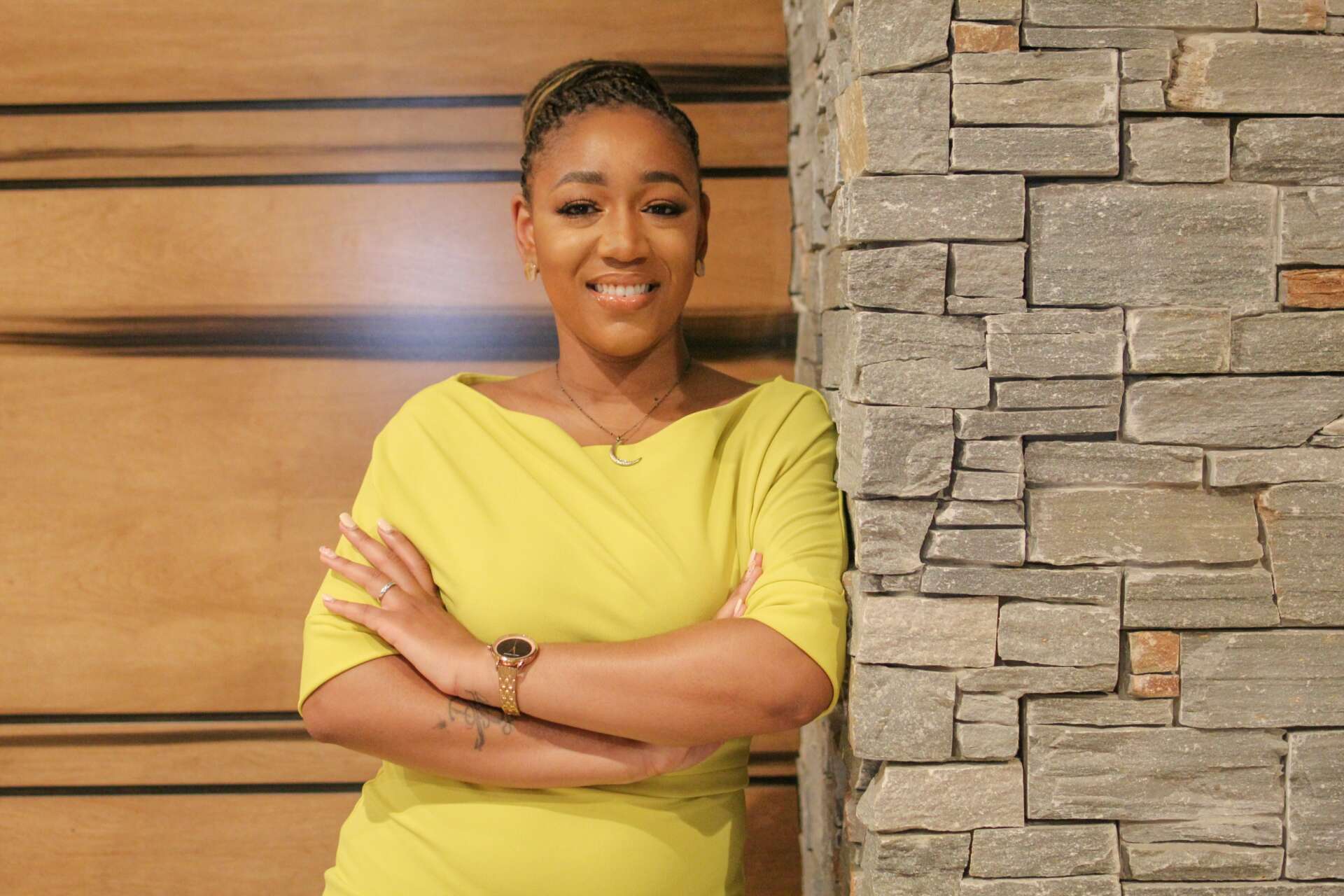
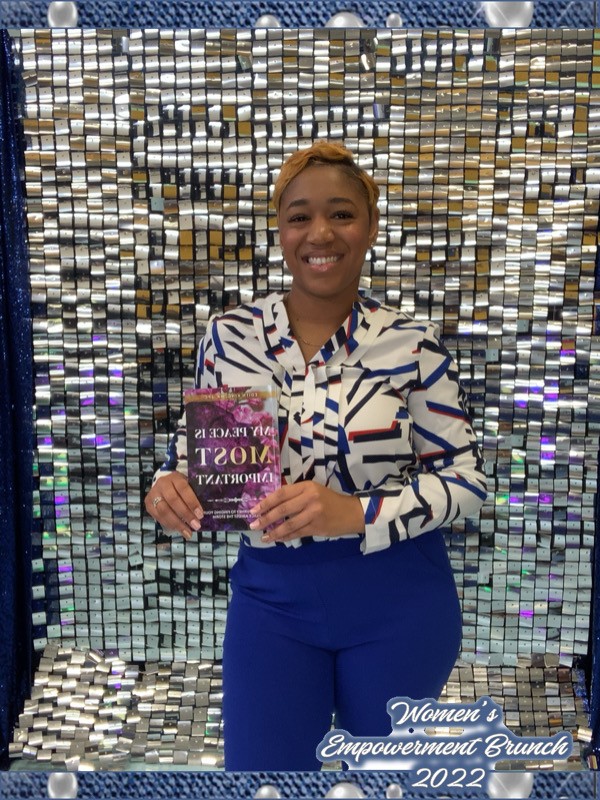
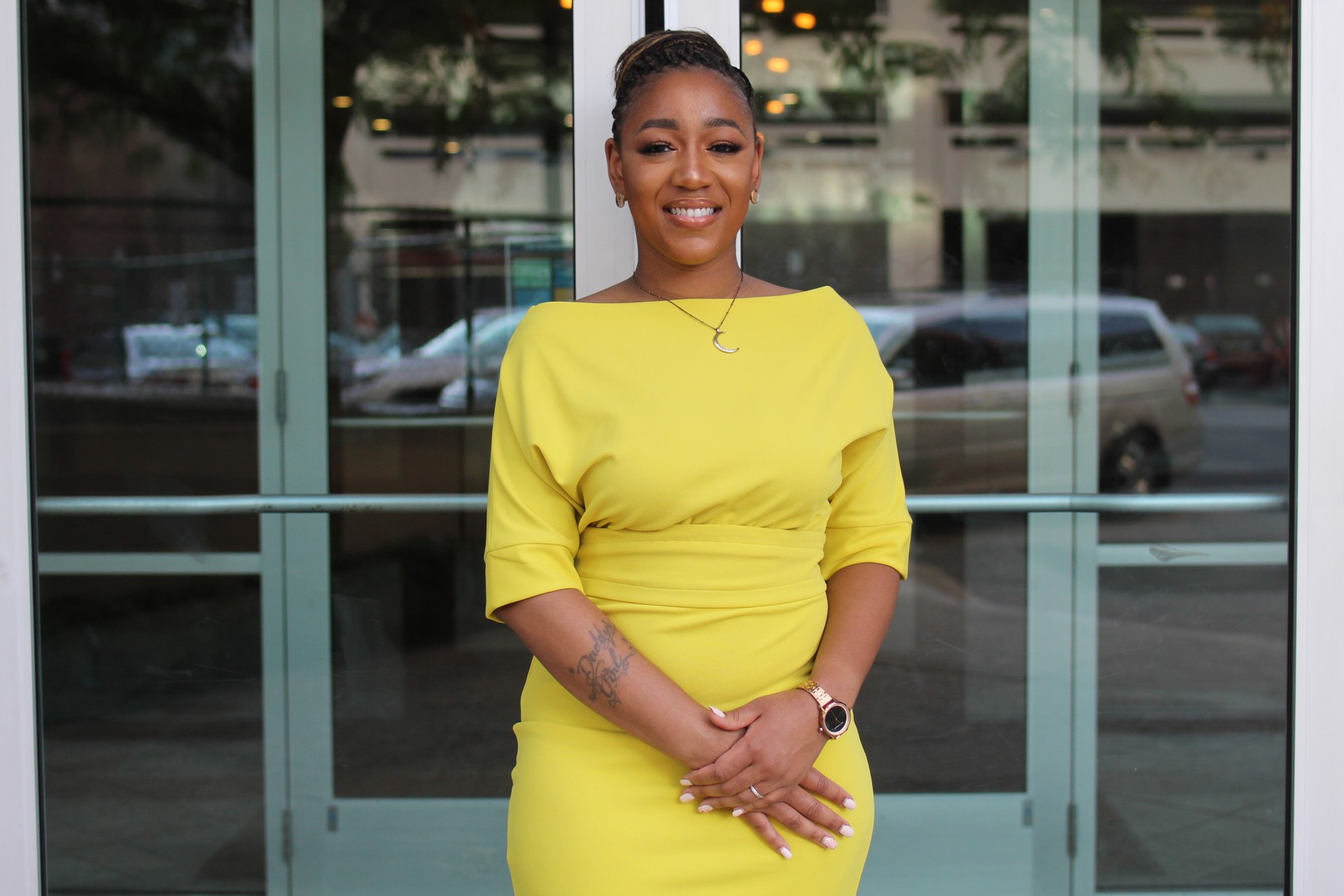
Great, appreciate you sharing that with us. Before we ask you to share more of your insights, can you take a moment to introduce yourself and how you got to where you are today to our readers
I decided on my career as a Therapist when I was in the 7th grade. We had a class project where we were tasked with the responsibility to map out our future life; we had to identify a career, salary, where we’d live, family plans, car, etc. At that time, I may have been the person all of my friends came to for advice or I was seen as a good listener — so I decided to choose Psychologist as my career, and the rest is (somewhat) history. In hindsight I realize that I didn’t quite choose Counseling, but instead it chose me. I went throughout high school with the ideal in mind to become a Therapist; my school counselor signed me up for 2 AP courses my senior year, one of which was Psychology — I ended the course with an A and a greater interest in & appreciation for the human psyche. Academics came easily for me, and while attending college or venturing into a professional career was somewhat of anomaly where I come from — it was without question that I’d be first in my family to go to college. I received support in the college search/application process from school admin and my aunt, and moral support from the rest of my family. “If anyone was going to ‘make it’, it would be Edie” felt like the general consensus from my family and loved ones. Bright eyed and bushy tailed, I entered into my freshman year at East Stroudsburg University of PA in the Fall of 2008 — while many of my peers were ‘Undecided’, I confidently declared a: Psychology major, with a concentration in Counseling and a minor in Health Services Administration. Armed with the (overly) ambitious goal to “cure mental illness” — I have since attained more realistic goals. I completed my college career in 4 years, passing all of my major classes with A’s or B’s, completing an internship at a Partial Hospitalization Program (for individuals with mental health diagnoses), and graduating Magna Cum Laude. I (again, over) ambitiously applied to ONE graduate program and for the first time in my life, I experienced rejection for something I knew I was really good at: school & academics. Also, for the first time in my life I experienced my first depressive episode — at the time of course, I didn’t realize it was depression, but in hindsight: the neglect of emotional reality, low motivation, risky behavior, social isolation, self-doubt, dysregulated mood, and coping via substance use, I know that it was depression through and through. I got the rejection letter half-way through my senior year, I didn’t have a back-up plan, so I decided I’d move back home, work for a year, and then maybe apply to grad school again in the future. On one visit back home I was greeted with a postcard from a local university that had a Masters in Counseling program, dejected and intrigued, I attended an ‘open house’. An application and 2 interviews later, I was accepted in the Counseling program at Eastern University; this ironically had been the same program that provided the AP courses at my highschool during my senior year — talk about a full circle moment. The program at Eastern was 3 years, I went straight through while working at Radio Shack, and then as a Admissions & Financial Aid Advisor at a trade-school (refining my people skills and broadening my horizons). In my 2nd year of the program, I started an internship at an outpatient substance-abuse clinic, while interning I also acquired a job as a case manager at that same organization. In 2015 I graduated with my Masters in Counseling and an offer to be a Full-Time Drug & Alcohol Therapist with said organization. I felt like I had finally ‘made’ it. I spent my years there doing group and individual counseling, learning all there was to know about trauma, substance abuse, and all the different ideas of what ‘recovery’ means. My work there taught me that: we’re all recovering from something. After 3 years, I became eligible to apply for my Professional License as a Counselor (requirement: Masters degree, 3000 hours of counseling, passing of national exam); I had already passed my exam, I had all of my hours, and after completing and paying for a tedious application, I was finally a Licensed Professional Counselor in the state of Pennsylvania. Licensure is the highest level of credentialing (in my states) for counselors — it suggests a certain level of experience and that you’ve paid your ‘dues’, it also opens the doors to professional opportunities and opportunities to grow in independence and autonomy. After 1 year of having my license, this proved to be true. In 2019, I joined a group private-practice (my first experience in the ‘private sector’), I got hired at my alma mater (Eastern University) as an Adjunct Professor for their counseling program, and I set out to complete my first book. Today, I’m the owner of a business private practice (Help, Heal, Serve), I have remained an Adjunct Professor for 8 consecutive semesters, and I am the author of self-help devotional titled: My Peace is Most Important. My work as a Counselor and Educator aren’t just jobs, they’re callings. I love what I GET to do in these roles, whether it be to: hold space, help someone to feel truly seen, help someone work through their trauma, educate, empower, mentor someone, or help someone grow in self-awareness and appreciation — I do these, and all the other things my jobs require with honor, love, and a spirit of reciprocity, because this work has given so much to me. It is not only rewarding, but also convicting, encouraging, informative, and inspiring. My revised goal isn’t as lofty as “curing mental illness” but instead it is to help my clients, students, and all those I encounter to become more self-aware, empowered, and intentional with how they live their lives and to do so with appreciation and compassion for themselves, because we’re all recovering from something.
Putting training and knowledge aside, what else do you think really matters in terms of succeeding in your field?
In addition to training/knowledge, there are two additional things I think are helpful for success in the field of counseling, they are: doing your own work and staying connected to other providers. The first: Doing your own work — what I mean by this is to actively seek counseling, healing, recovery for yourself. The field of counseling/psychology is historically founded upon patriarchy and elitism, individuals of marginalized communities may not have access to quality mental health care or they weren’t believed or treated properly for their experiences with mental distress. Because of the “elite” history of the field, many people easily place Psychiatrists, Psychologists, and Counselors on a pedestal, and as a provider it can become easy to get drunk on the kool-aid of your own self-importance. I think doing your own work encourages humility, respect for one’s clients & those suffering with mental health challenges, and ensures that you don’t ‘bleed’ on your clients. Many people get into the field with the goal of helping others, but they themselves believe they are above receiving help, all the while using their clients as a way to avoid their own issues. This does not mean to suggests that Therapists need be perfect, but they need to be human and understand that no one is above needing support.
The second thing I think is important is staying connected to other counselors/therapists. I think all industries have their unique inside-jokes and quirks that individuals outside of the field may not quite understand — the same can be said for the field of counseling/psychology. From burnout, to compassion fatigue, to the dark humor associated with healing, and effective execution of a highly coveted trauma intervention — therapists benefit from having other therapists to share these challenges and experiences with. In the moments when spouses, relatives, and friends don’t get it, your therapist friends likely will. I’ve cultivated a group of therapists friends and I’ve also joined other support groups with fellow therapists where we share ideas, accomplishments, war stories, and everything in between. It’s been VITAL to my work as a counselor, especially in the middle of a global pandemic where at times it felt like it was just me, 4 walls, and my clients through a computer screen. I’m grateful for my village of therapist peers and friends.
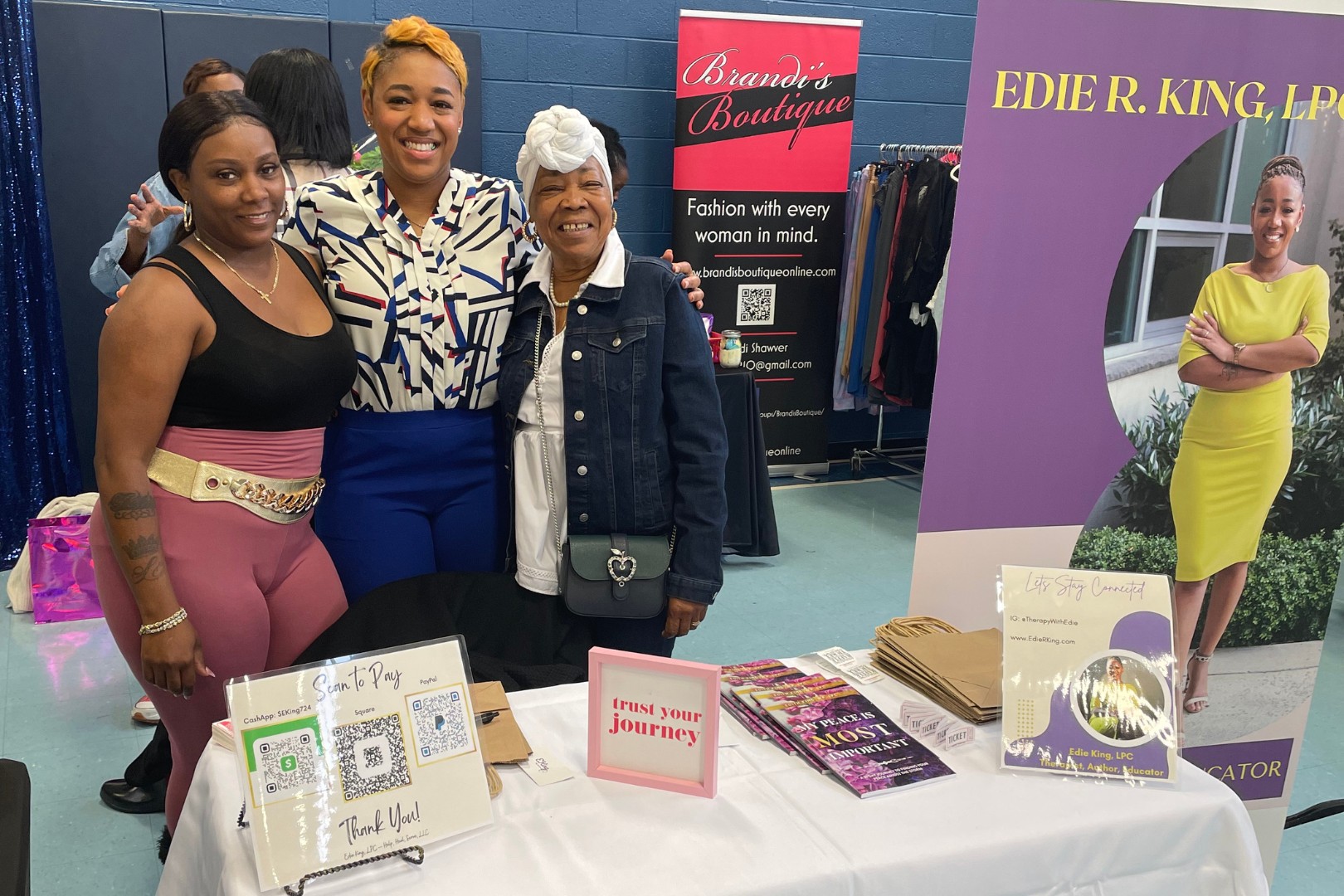
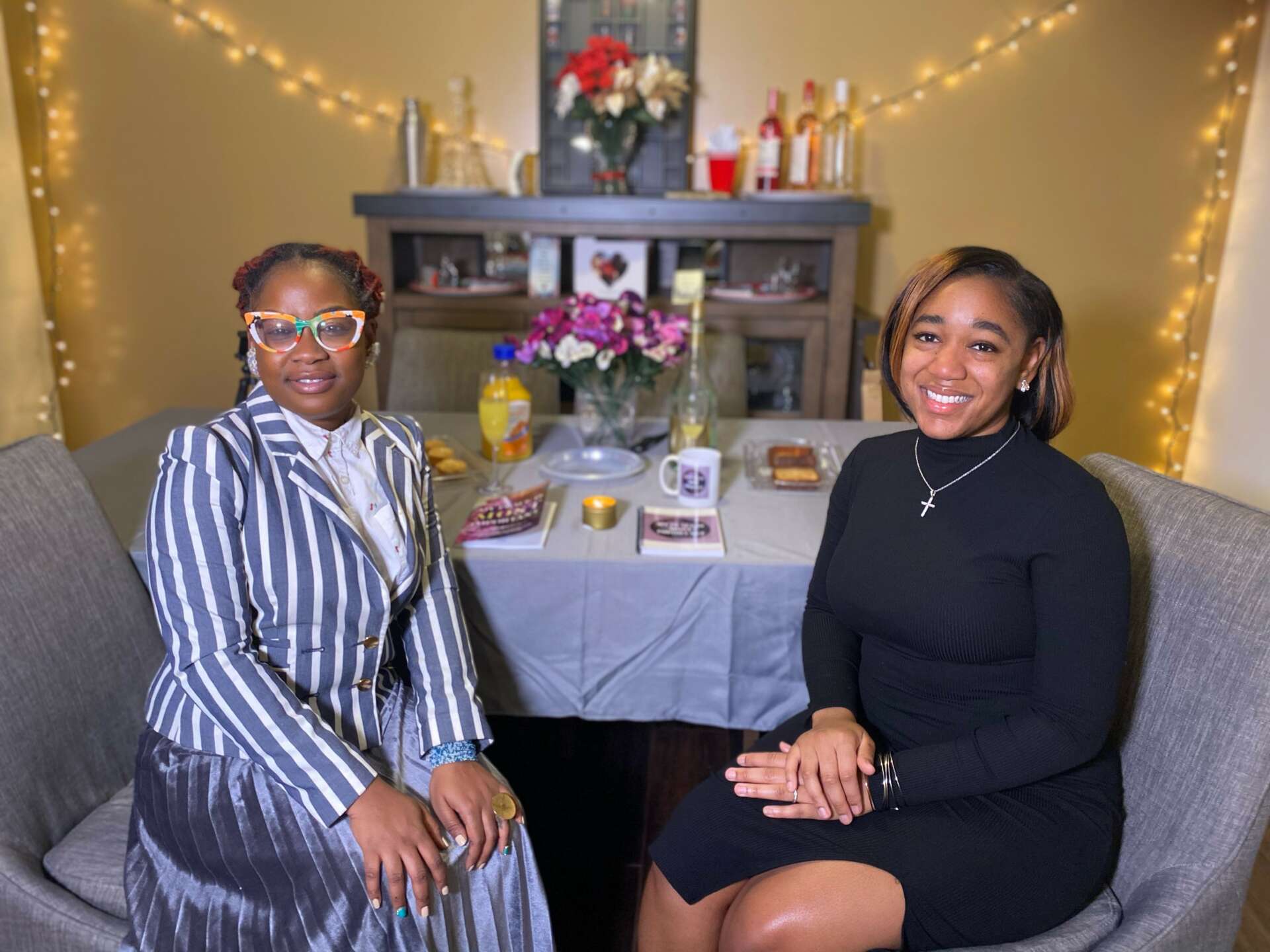
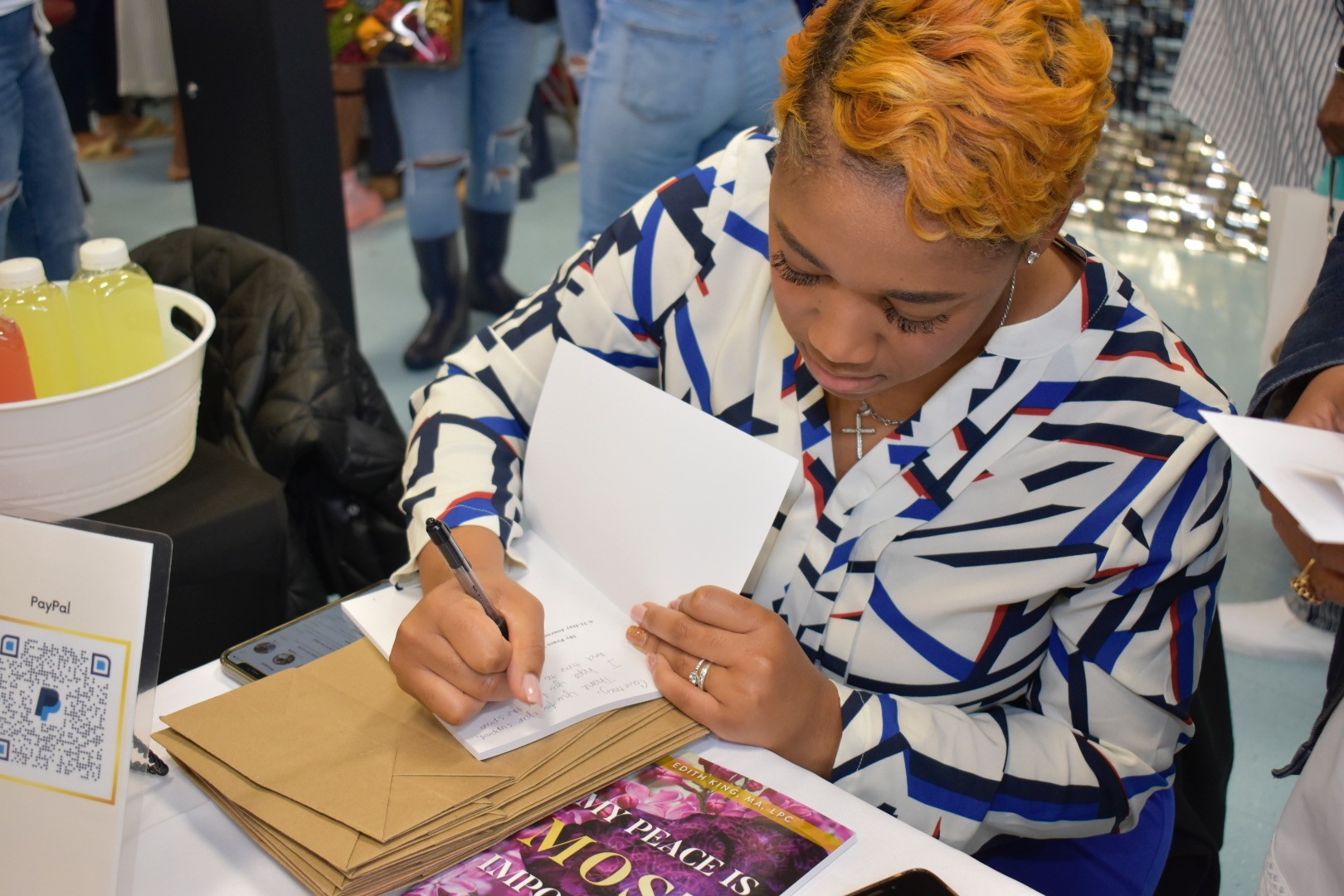
Have you ever had to pivot?
I assume that similar to many others, in March of 2020 I had to pivot completely. At the time I had 3 jobs, all part-time: a drug & alcohol agency, group private practice, and adjunct professor. All at once, the work I learned to do in-person and that I could only conceptualize as doing in person, was now online. I was scared, uncertain, and doubtful that virtual counseling would be effective. I spent the early months of the pandemic ‘holding space’ for my clients, bonding over shared experiences of uncertainty, and inadvertently becoming more & more proficient on virtual platforms like Zoom. In my personal life, my (then) boyfriend and I had been living with my (now) father-in-law to save up to purchase our first home. We lived in a finished basement with the basic necessities, but it wasn’t nearly equipped for a ‘work-from-home’ set up. I alternated between the living room, dining room, and my father-in-laws office when he wasn’t occupying it. I think back now at how understanding my clients were and how none of them seemed to mind the inconsistency of my background. 6 months into the pandemic my husband and I finally closed on our home, this too came with many pivots. I now had an actual home office however, I went from using a folding chair & table with a bland background, to more a “professional” looking desk, a “real” office chair, and brand representation as my backdrop. This pivot taught me that the means of therapy, whether virtual or in-person aren’t as important as the availability and willingness of those showing up to the appointment (both counselor and client). Despite these pivots, I committed to showing up daily, because I knew someone was depending on me to be available to listen to them.
Contact Info:
- Website: www.edierking.com
- Instagram: TherapyWithEdie
- Linkedin: Edith King
- Youtube: https://www.youtube.com/channel/UCek_VJcEt7odpg3mxDTyoQw
Image Credits
Stacy Gray/The Gray Lens


